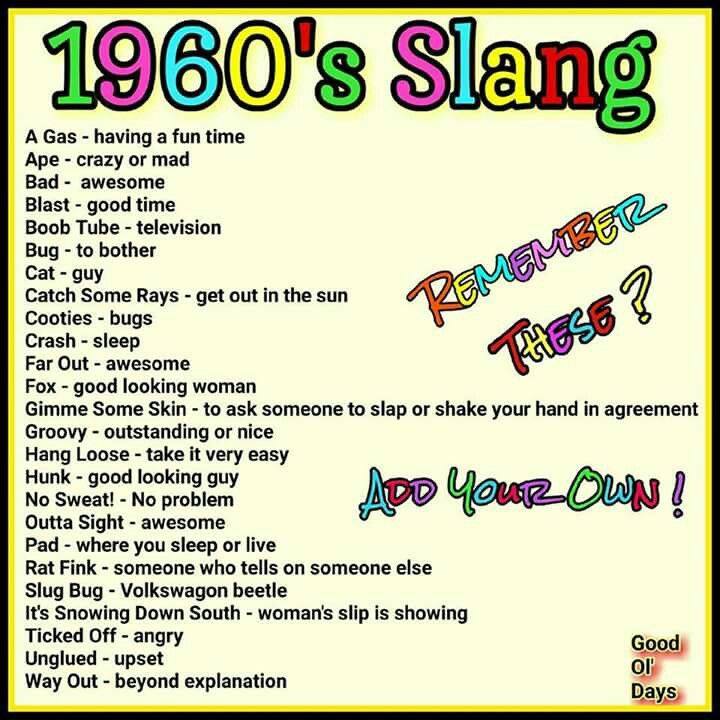


Other sources range widely: popular fiction, newspaper stories, Lennon and McCartney song lyrics, scholarly journal articles, magazines, transcripts of debate in Northern Ireland's parliament, and more-even Rush Limbaugh's radio program (source of the term feminazi) and Howard Stern's Miss America (1995). Holm's Dictionary of Bahamian English (1982) and Ruth Todasco's The Intelligent Woman's Guide to Dirty Words (1973). The New Partridge draws on numerous specialized dictionaries, including Rick Ayers' Berkeley High Slang Dictionary (2004) Gregory Clark's Words of the Vietnam War (1990) Ralph de Sola's Crime Dictionary (1982) John A.
DICTIONARY OF SLANG 1960 MODS
Dalzell and Victor celebrate the English language's fecundity by "embrac the language of the beats, hipsters, Teddy Boys, mods and rockers, hippies, pimps, druggoes, whores, punks, skinheads, ravers, surfers, Valley Girls, dudes, pill-popping truck drivers, hackers, rappers and more."Īs in the original Partridge, entries list the term, identify its part of speech, explain its meaning, identify the country of origin, and cite sources or provide quotations showing how the term is used. Its catholicity includes "pidgin, Creolised English and borrowed foreign terms used by English-speakers in primarily English-language conversation." Gone are Partridge's labels separating the polite sheep from the vulgar goats.

It encompasses the entire English-speaking world and focuses on slang and unconventional English used or created since 1945. Victor, a British actor and playwright, expresses his enthusiasm for slang's popularity, earthiness, and expressiveness in his rather peculiar endorsement for the New Partridge, saying, "If you never read a more exciting, more sexy, more rude, more filthy, more disgusting book in your life, it would have been one of the best books you ever read."īoth deeply connected through life experience with post-World War II culture, the editors have created a truly new Partridge. Dalzell, a California labor lawyer who entered the bar not through the conventional path of a law degree but by "reading the law," has read widely in other areas and has become a nationally recognized expert on slang in English, especially in American English. In their backgrounds, the editors embody the spirit and informality of slang. In the flattened world, colloquialisms and slang terms have often become indistinguishable. vice president has been recorded publicly hurling one of the most vulgar yet most common slang words at a senator. As the culture changed-some would argue that it coarsened-the notion of vulgarisms has become anachronistic. As the world changed, as English with an American accent became the lingua franca of the latter half of the twentieth century, Partridge (1894-1979) was less connected to the popular culture that breeds slang. Conspicuously absent was the rich slang of the U.S., slang exported worldwide by GIs during World War II and broadcast globally through communications media that have, to use a current catchphrase, made the world flat. Partridge recorded the slang of the UK as well as that of some Commonwealth countries. The last, Partridge explained, are "words and phrases that, in no way slangy, are avoided in polite society." English has changed society has changed the time has come for a new Partridge. These included slang and cant, colloquialisms, solecisms, catchphrases, nicknames, and vulgarisms. In edition after edition, Partridge enumerated slang words, provided quotations both to illustrate use and to date origins, cited other authorities, and applied usage labels. Long live the king! Since 1937 the standard dictionary of English slang has been Eric Partridge's The Dictionary of Slang and Unconventional English.


 0 kommentar(er)
0 kommentar(er)
